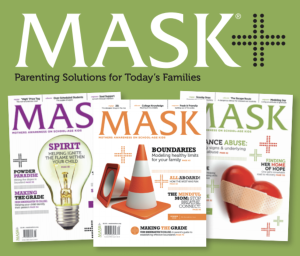
Don’t Waste The Teachable Moments
January 15, 2022
Living in a Busy World
January 17, 2022You’ve listened, reassured and supported your child through tough times, but it’s also important to talk a little, if only to give them the basic skills of problem solving. Shure said she views it as the top rung on the ladder of parenting approaches.
The bottom rung is a “power” approach that “all parenting experts agree is not effective,” she says. This includes giving the child negative punishments, time-out sessions and even yelling or spanking a child. The second rung is more positive, with a parent giving the child suggestions and directions on what to do.
The third rung, called induction, focuses on a parent not telling a child what to do, but explaining why: “If you hit him, it will hurt him,” or “If you grab all the toys, you won’t have any friends.” The child is a passive recipient, though, with the parent is doing all the talking. The fourth rung is a more “dynamic” approach, Shure says, in which the parent asks the child questions like “how do you think I feel” and “how do you feel about…” and gets the child’s point of view.
In this way, the child learns empathy because he learns to recognize feelings, she says, and it’s an ideal way to handle situations revolving around peer pressure. For example, one question Shure says a parent might ask is, “Can you think of a different way to solve this problem so your friend won’t be mad?” By coming up with their own solutions, kids feel empowered to take action.
“Children are more likely to carry out their own ideas,” she explains.
In addition, this approach aids those kids who are the perpetrators of peer pressure, because many of those kids haven’t developed genuine empathy for others, she says. And if a child doesn’t care about his own feelings, he won’t care about anyone else.
On her website, ThinkingChild.com, Shure recommends asking kids questions in an effort to combat peer pressure at school. They include:
What are your hopes and dreams?
What might happen to your hopes and dreams if you smoke cigarettes, or try drugs?
How will you feel about that?
Can you think of something you can do or say so those things won’t happen?
“When you ask a child a question, instead of telling him what to do or explaining why, it’s a way to start a conversation, a dialogue” she said. “And if you start dialoguing with children when they’re younger, and before peer pressure enters into their lives, they’ll learn how to deal with things when they come and develop thinking skills for handling problems relevant to them when they’re 14.”
MASK the Parenting Magazine a quarterly publication providing solutions for Today’s Families.
The parenting manual offering solutions to the modern-day challenges families face. From Pre-K
through College stay up to date on the modern day issues families face.
Are you up to date on the issues your child is facing?
MASK Mothers Awareness on School-age Kids offers parenting solutions for today’s families. MASK tackles important topics – from drugs and alcohol to bullying and Internet safety -and gives students, parents and the community the knowledge and tools to manage these potential challenges.
Subscribe today! https://www.tools4teaching.com/product/mask-the-magazine/
Download and share the MASKmatters app now! Made for children, parents, teachers and in Spanish.
Have solutions at your fingertips
Available free on apple and google play links below
Apple https://apps.apple.com/us/app/maskmatters/id1482305692
Google Play
https://play.google.com/store/apps/details?id=com.maskmatters.maskmattersapp&hl=en_US&gl=US




